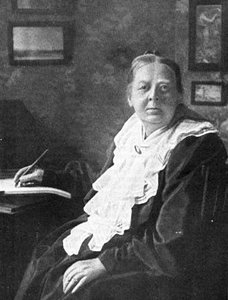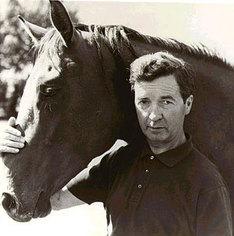A Quote by Charlotte Bronte
Arraigned at my own bar, Memory having given her evidence of the hopes, wishes, sentiments I had been cherishing since last night-- of the general state of mind which I have indulged for nearly a fortnight past; Reason having come forward and told in her own quiet way , a plain, unvarnished tale, showing how I had rejected the real, and rabidly devoured the ideal;-- I pronounced judgment to this effect:-- That a greater fool than Jane Eyre had never breathed the breath of life: that a more fantastic idiot had never surfeited herself on sweet lies, and swallowed the poison as if it were nectar.
Quote Topics
Bar
Been
Breath
Come
Effect
Evidence
Fantastic
Fool
Fortnight
Forward
General
Given
Greater
Had
Having
Her
Herself
Hopes
How
Ideal
Idiot
Jane
Judgment
Last
Last Night
Lies
Life
Memory
Mind
More
My Own
Nearly
Nectar
Never
Night
Own
Past
Plain
Poison
Quiet
Real
Reason
Rejected
Sentiments
Showing
Since
State
State Of Mind
Swallowed
Sweet
Tale
Than
Way
Were
Which
Wishes
Related Quotes
She was like me in lineaments-- her eyes Her hair, her features, all, to the very tone Even of her voice, they said were like to mine; But soften'd all, and temper'd into beauty; She had the same lone thoughts and wanderings, The quest of hidden knowledge, and a mind To comprehend the universe: nor these Alone, but with them gentler powers than mine, Pity, and smiles, and tears-- which I had not; And tenderness-- but that I had for her; Humility-- and that I never had. Her faults were mine-- her virtues were her own-- I loved her, and destroy'd her!
Yet there were times when he did love her with all the kindness she demanded, and how was she to know what were those times? Alone she raged against his cheerfulness and put herself at the mercy of her own love and longed to be free of it because it made her less than he and dependent on him. But how could she be free of chains she had put upon herself? Her soul was all tempest. The dreams she had once had of her life were dead. She was in prison in the house. And yet who was her jailer except herself?
Strangely, what pierced his heart and mind most sharply was not the memory of her lips under his at the ball, but the way she had leaned into his neck, as if she trusted him utterly. He would have given everything he had in the world and everything he would ever have, just to lie beside her in the narrow infirmary bed and hold her while she slept. Pulling away from her had been like pulling his own skin off, but he'd had to do it.
In giving our daughter life, her father and I had also given her death, something I hadn't realized until that new creature flailed her arms in what was now infinite space. We had given her disease and speeding cars and flying cornices: once out of the fortress that had been myself, she would never be safe again ... We disappoint our kids and they disappoint us, and sometimes they grow up into people we don't like very much. We go on loving, though what we love may be more memory than actuality. And until the day we die we fear the phone that rings in the middle of the night.
Her family had of late been exceedingly fluctuating. For many years of her life she had had two sons; but the crime and annihilation of Edward a few weeks ago, had robbed her of one; the similar annihilation of Robert had left her for a fortnight without any; and now, by the resurrection of Edward, she had one again.
Mathematics had never had more than a secondary interest for him ; and even logic he cared for chiefly as a means of clearing the ground of doctrines imagined to be proved, by showing that the evidence on which they were supposed to rest had no tendency to prove them. But he had been endeavouring to give a more active and positive help than this to the cause of what he deemed pure religion.
Occasionally, on screen, Barbara [Stanwyck] had a wary, watchful quality about her that I've noticed in other people who had bad childhoods; they tend to keep an eye on life because they don't think it can be trusted. After her mother was killed by a streetcar, she had been raised in Brooklyn by her sisters, and from things she said, I believe she had been abused as a child. She had lived an entirely different life than mine, that's for sure, which is one reason I found her so fascinating. I think her early life was one reason she had such authenticity as an actress, and as a person.
I started reading seriously at seven or eight, books about myths and legends, the Narnia series. By the time I was 11, I had read all the children's books in my local library, so I moved on to 'Jane Eyre.' What I loved about Jane Eyre was that she didn't rely on her looks but her character. She had a spirit nobody could break.
I love my mother for all the times she said absolutely nothing.... Thinking back on it all, it must have been the most difficult part of mothering she ever had to do: knowing the outcome, yet feeling she had no right to keep me from charting my own path. I thank her for all her virtues, but mostly for never once having said, "I told you so.
He lifted his gaze to the framed photograph of Tanya and him taken on their wedding day. God, she had been lovely. Her smile had come through her eyes straight from her heart. He had known unequivocally that she loved him. He believed to this day that she had died knowing that he loved her. How could she not know? He had dedicated his life to never letting her doubt it.
although she went home that night feeling happier than she had ever been in her short life, she did not confuse the golf course party with a good party, and she did not tell herself she had a pleasant time. it had been, she felt, a dumb event preceded by excellent invitations. what frankie did that was unusual was to imagine herself in control. the drinks, the clothes, the instructions, the food (there had been none), the location, everything. she asked herself: if i were in charge, how could i have done it better?
And yet, standing behind her son, waiting for the traffic light change, she remembered how in the midst of it all there had been a time when she'd felt a loneliness so deep that once, not so many years ago, having a cavity filled, the dentist's gentle turning of her chin with his soft fingers had felt to her like a tender kindness of almost excruciating depth, and she had swallowed with a groan of longing, tears springing to her eyes.





































